History of Classics Discussed at UHK
An essential part of the Oral History and the Classics project was a conference held in the Faculty of Philosophy, University of Hradec Králové. This academic meeting which took place on June 1st-2nd and was titled Classics: the Past, the Present, and the Future. It gathered specialists reflecting on various issues related to the development of classical studies including history of ancient philosophy.
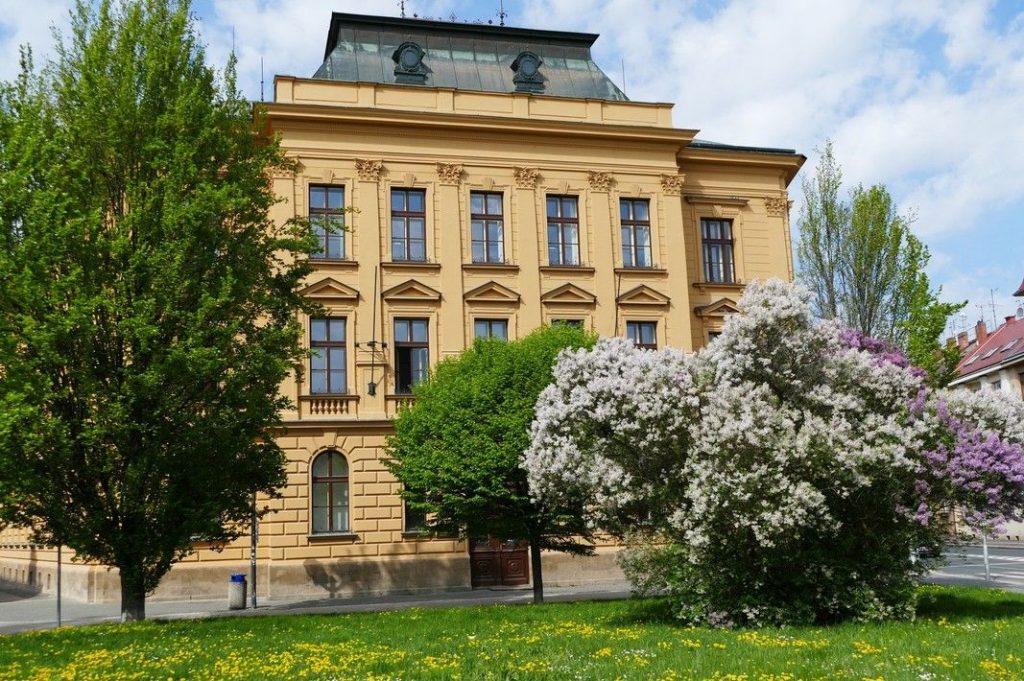
The head of the project and the conference was professor Jaroslav Daneš, with some help from Tomasz Mróz (University of Zielona Góra), a researcher in the project. Participants of the conference focused on historical developments of the classics, including their own experiences, “personal paths”, on recent problems, e.g. with teaching classics, and on the perspectives of future research in this area of studies.
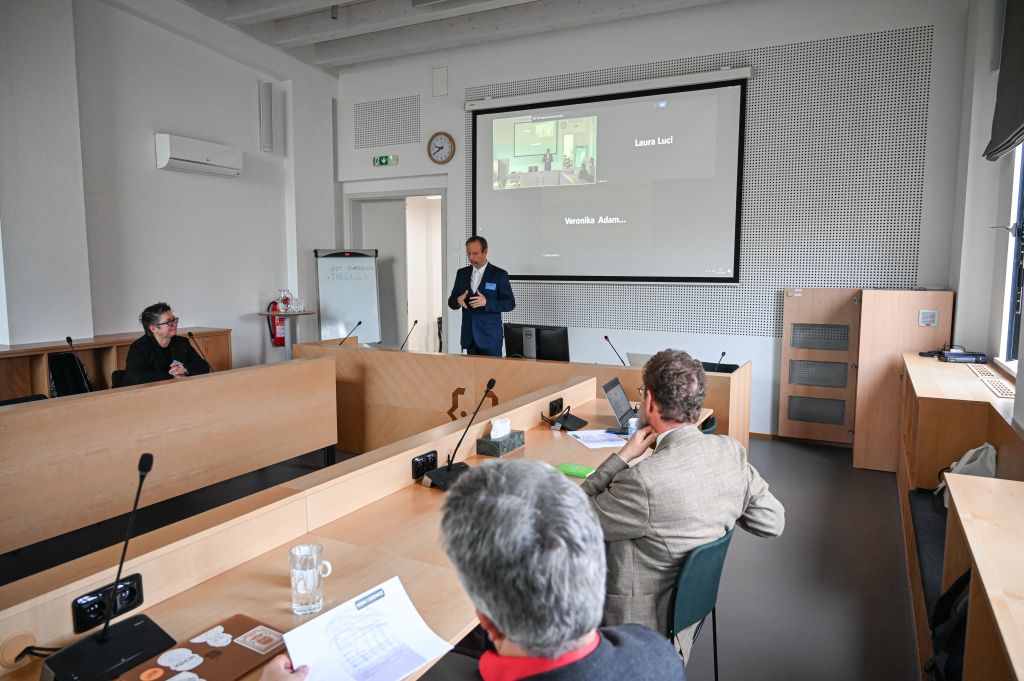
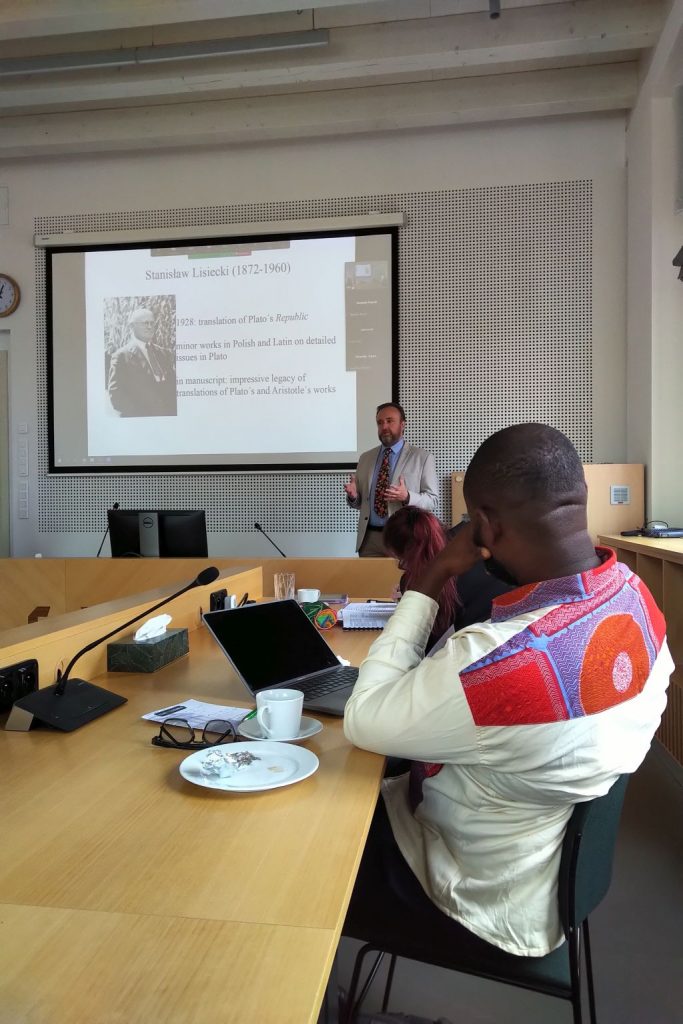
Platonic Inspirations was the title of the session during which an AΦR member,T. Mróz, delivered his paper: Plato in post-war Poland. Continuities and novelty. His talk was devoted to three Polish Plato scholars, who survived the World War II and attempted to include their experience of war and the post-war political situation of Poland into their studies on ancient philosophy. They were, starting with the oldest: Wincenty Lutosławski (1863-1954), Stanisław Lisiecki (1872-1960), Władysław Witwicki (1878-1948). It is sufficient to mention that it was the Marxist interpretation of Plato that was pushed in Poland after the war by Polish Marxist philosophers (e.g. by T. Kroński) and in general works on philosophy translated from Russian. In these circumstances Lutosławski planned to published a volume on Plato presenting him as an intellectual and moral remedy for Europe, Witwicki, quite the opposite, blamed the philosopher for inventing totalitarianism, and Lisiecki turned from Plato to Aristotle, who was more acceptable then as a naturalist and a critic of Plato.
Vitello’s Anthropology and Its Aristotelian Roots
On May 28th-29th 2024 a conference titled Polish Philosophical Anthropology took place in Częstochowa. This event was organised by the Department of Philosophy, Jan Dlugosz University. It was another conference held in Częstochowa that aimed at shedding some new light on selected aspects of the history of philosophy in Poland.
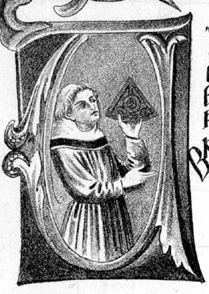
AΦR member, Tomasz Mróz, has participated in this conference with a paper devoted to the philosopher with whom all the histories of philosophy in Poland usually begin. It was Vitello, a 13th century scholar, who is well-known from his theory of demons as animals built from the four elements with air as a dominant factor. Vitello argued that the demons were superior physically and intellectually to all the other animals, including human beings. Human beings, consequently, could only be considered as an intermediary species between apes and demons. In this way Vitello, with the aid of Aristotle, demonstrated that human being can’t be regarded as a crowning creature in the terrestrial world. Let us add on the margin that Vitello took advantage of his expertise in philosophy, natural sciences, medicine and life’s experience to depict vividly various interactions between humans and demons, not all of which can be presented to the minors 😉
Plato in Poland book available in OA
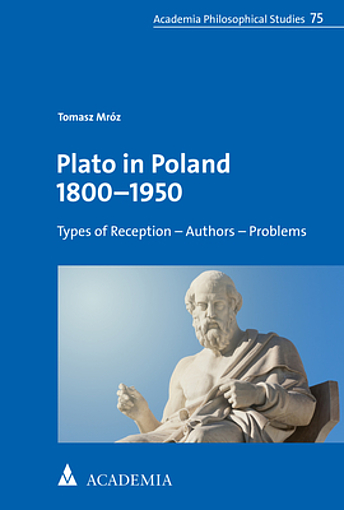
This post is only to announce that the book by T. Mróz, Plato in Poland 1800-1950. Types of Reception – Authors – Problems (Academia Verlag/Nomos Verlagsgesellschaft, Baden Baden 2021), as a result of the agreement with the publisher, is now available free in open access on the Nomos Verlag website here and in the repository of the University of Zielona Góra, here. Enjoy!
“Oral History and the Classics” Team in Warsaw
On May 22th, 2024, Oral History and the Classics project team was honoured to pay a visit to Doctor Barbara Brzuska, who kindly agreed to be interviewed in her apartment in Warsaw. Dr Brzuska is another Polish scholar who gave her consent to answer our questions. She is a specialist in Latin, Latin literature, and – most importantly for AΦR – has published numerous works on the history of reception of antiquity in modern times and on the history of teaching classical topics in the 19th and 20th centuries, researching a variety of phaenomena of classical receptions among writers, poets, and philosophers. Let us add that we have previously managed to interview two Polish specialists in ancient philosophy, namely prof. Bogdan Dembiński in February 2024 in Katowice and prof. Andrzej Wesoły in December 2023 in Poznań. These two meetings have already been announced here and here. All these Polish interviews, plus Czech and Italian ones, furnished with English subtitles, will be included in the Oral History and the Classics collection on the website of the University of Hradec Králové.
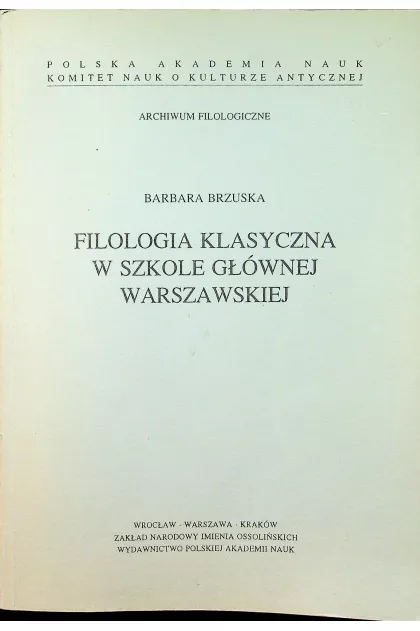
Dr B. Brzuska is now a retired lecturer of classical culture and instructor of Latin language. Her entire academic career was related to the University of Warsaw. One of her most important works was a study of the history of classical languages and culture in the Main School of Warsaw, a university that was working for a very limited time of a few years in Warsaw under Russian rule. This study, apart from a comprehensive investigation of its topic, offers much more to the readers, for it includes the background of the school and its later influences.
During the interview Dr Brzuska emphasised the role of popular works for wider audiences in instilling the interest in classics. It was also her case, for those were the books by Jan Parandowski (1895-1978) that attracted her to the classical world and subsequently inspired to learn classical languages. She recalled her memories of her university years and outstanding professors, with Kazimierz Kumaniecki (1905-1977) in the first place. Dr Brzuska, as a teacher of Latin with decades long experience, shared her views on the evolution of teaching methods and on the contemporary digital aids for learning, which can be of great help and a trap at the same time.
The interview was carried out by T. Mróz, while Jan Kadeřábek, a cinematographer and a cameraman, took care of all the technicalities. Both were very thankful for the casual and friendly atmosphere which was created by their kind and warm host and interviewee.
On the photo:
Dr B. Brzuska, T. Mróz and J. Kadeřábek
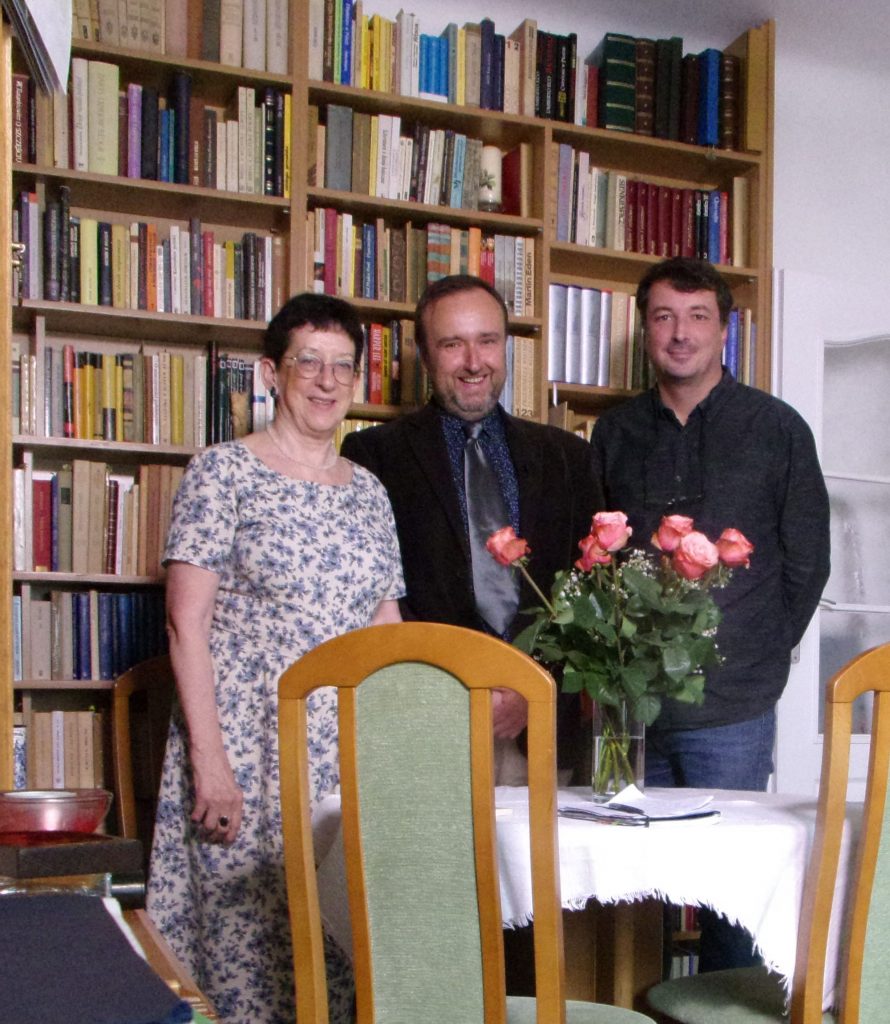
Philosophy and Poetry in Gorzów Wielkopolski
On May 13th-14th 2024 the Jacob of Paradies Academy in Gorzów Wielkopolski held an international conference Poesis Philosophorum – Philosophia Poetarum. The head, heart and the soul of this symposium was professor Marian Wesoły with whom Oral history team, including AΦR member, had conducted an interview in December 2023, as it was announced here.
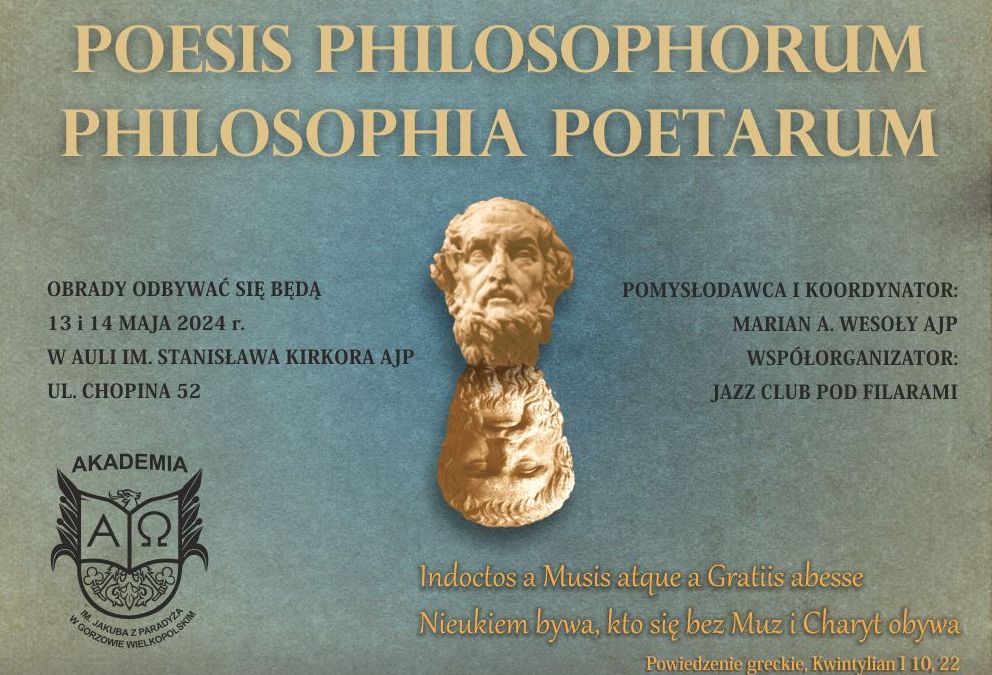
Detailed program of the conference can be downloaded here. Tomasz Mróz was one of the speakers on the first day of the conference. In his presentation he took an attempt to demonstrate how Polish poets referred to philosophers, or how philosophers used poetry to explain philosophy.

T. Mróz discussed both ancient and modern philosophers, whose ideas had been referred to by poetic means. Apart from various verses on Copernicus or Jarosław Iwaszkiewicz’s poem on Immanuel Kant, T. Mróz presented Ignacy Krasicki’s (1735-1801) satire on Plato and Stanisław Lisiecki’s (1872-1960) use of a church anthem to explain the predominant character of the Good in Plato’s philosophy.
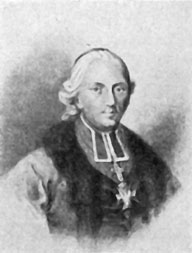
Krasicki was a leading representative of the Enlightenment literature in Poland. The aim of his poem was to ridicule Plato’s philosophy and the figure of an ancient sage in general: Plato, pompously speaking to his disciples as a possessor of wisdom, is ultimately bitten by a flea who in this way declares its possession over Plato. No philosopher, then, can escape nature!
Lisiecki was not a poet, but over a century later classics scholar and translator of Greek philosophy into Polish. He used the lyrics of a church song, praising inexhaustibility, inexplicability and God’s predominance over the created world. His intention was to demonstrate Polish audience that Plato’s highest Good had a similar character to Christian God, the highest being, and could be easily comprehended by means of analogy.
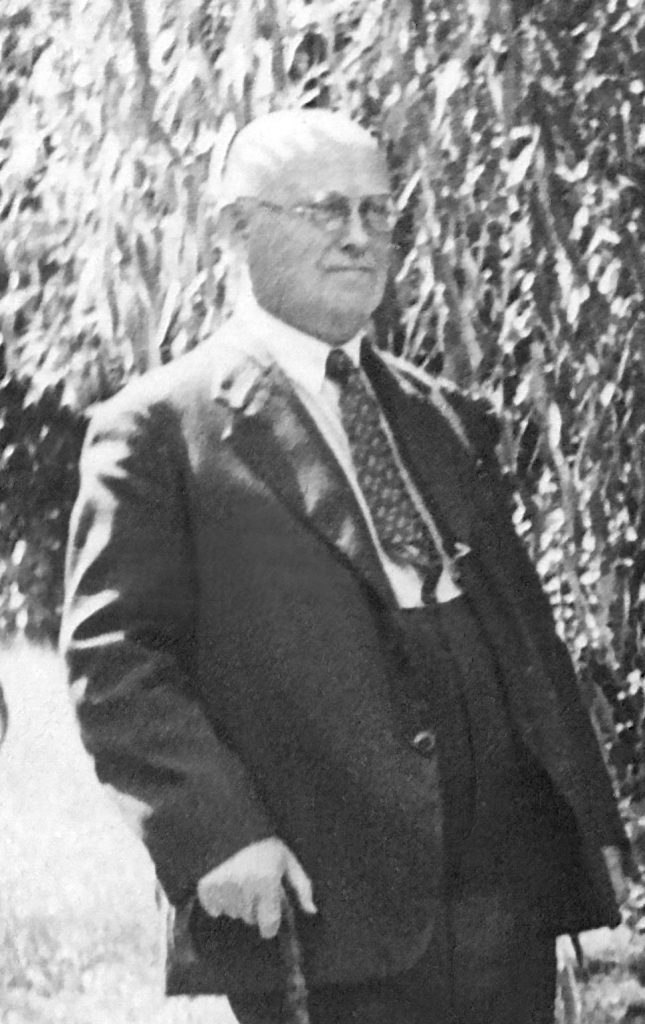
This paper contributed to the variety of topics discussed during the conference, presenting various relations between philosophy and poetry. The conference in general demonstrated that even smaller academic institutions can gather international participants, organise significant academic events and thus contribute to philosophical life, granted that there is some spiritus movens behind them.
(Another) Erasmus Teaching Visit in Vilnius
In April, 15th-19th, 2024, Tomasz Mróz enjoyed his fourth Erasmus teaching visit in Faculty of Philosophy, Vilnius University.
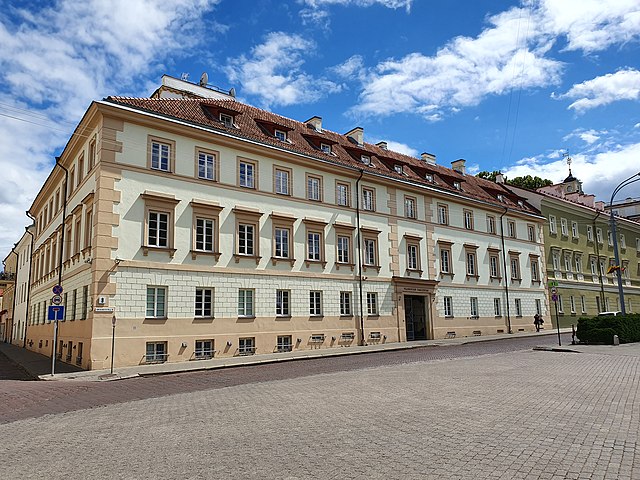
This year, some issues connected to the reception of ancient philosophy were addressed during the lecture on Władysław Tatarkiewicz (1886-1980) and his History of Philosophy. It was ancient philosophy as a subject of various problems in historiography of philosophy.
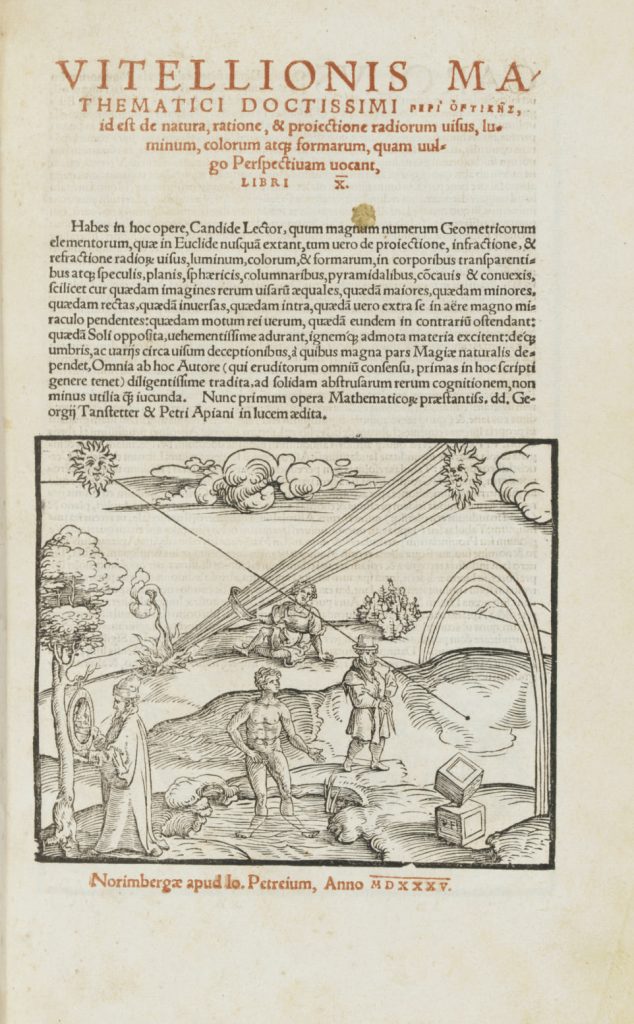
More important, however, was a talk devoted to Vitello (ca. 1230-1300) and his theoretical reflection on the nature of the daemons. Vitello’s demonology stemmed from his research in natural sciences and it employed neo-Platonic and Aristotelian elements, such as a belief in a mathematical structure of the universe, the theory of four elements and natural creatures. Vitello’s philosophical investigations were presented against the background of the 13th century developments in philosophy, especially the Averroist controversy.
Teaching duties were supplemented with meetings with the Faculty members and discussions with students extra universitatis muros. Hopefully, this was not the final chord in the co-operation between Vilnius University and the University of Zielona Góra.
A Visitor from Vilnius and Plato as a Teaching Subject
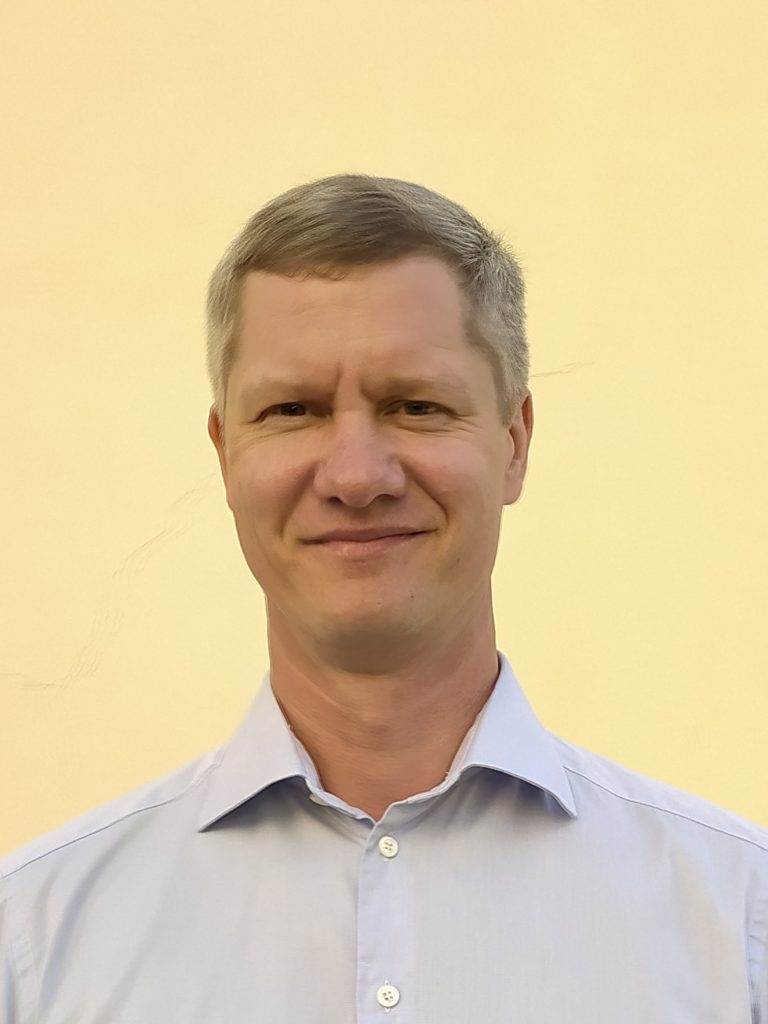
In March 4th-8th an Erasmus exchange visitor from Vilnius University stayed at the University of Zielona Góra and delivered some talks here. Our guest was dr. Mindaugas Stoškus who is an assistant professor at the Department of Theoretical Philosophy and Philosophy of Science, Faculty of Philosophy, VU.
Among M. Stoškus’ presentations there was one on the methods of teaching ancient philosophy, as a part the reception of ancient philosophy, and it was delivered to the students in the Doctoral School of Humanities and Social Sciences and to invited guests. The central topic of his lecture was Plato’s Republic and Plato’s political project which, resulting from Stoškus’ interactive co-operation with the audience, turned out to be a tricky and problematic issue. The lecturer demonstrated to the audience, consisting mostly of non-philosophers, how superficial reading of Plato’s opus magnum may lead to misunderstanding of the true nature of his political aims, one of which was disjoining wealth and personal success from political power and responsibility.
We hope that M. Stoškus’ visit at UZ is not the final chord of the co-operation between our two partner institutions and that our mutual collaboration will develop.
Recent commentaries